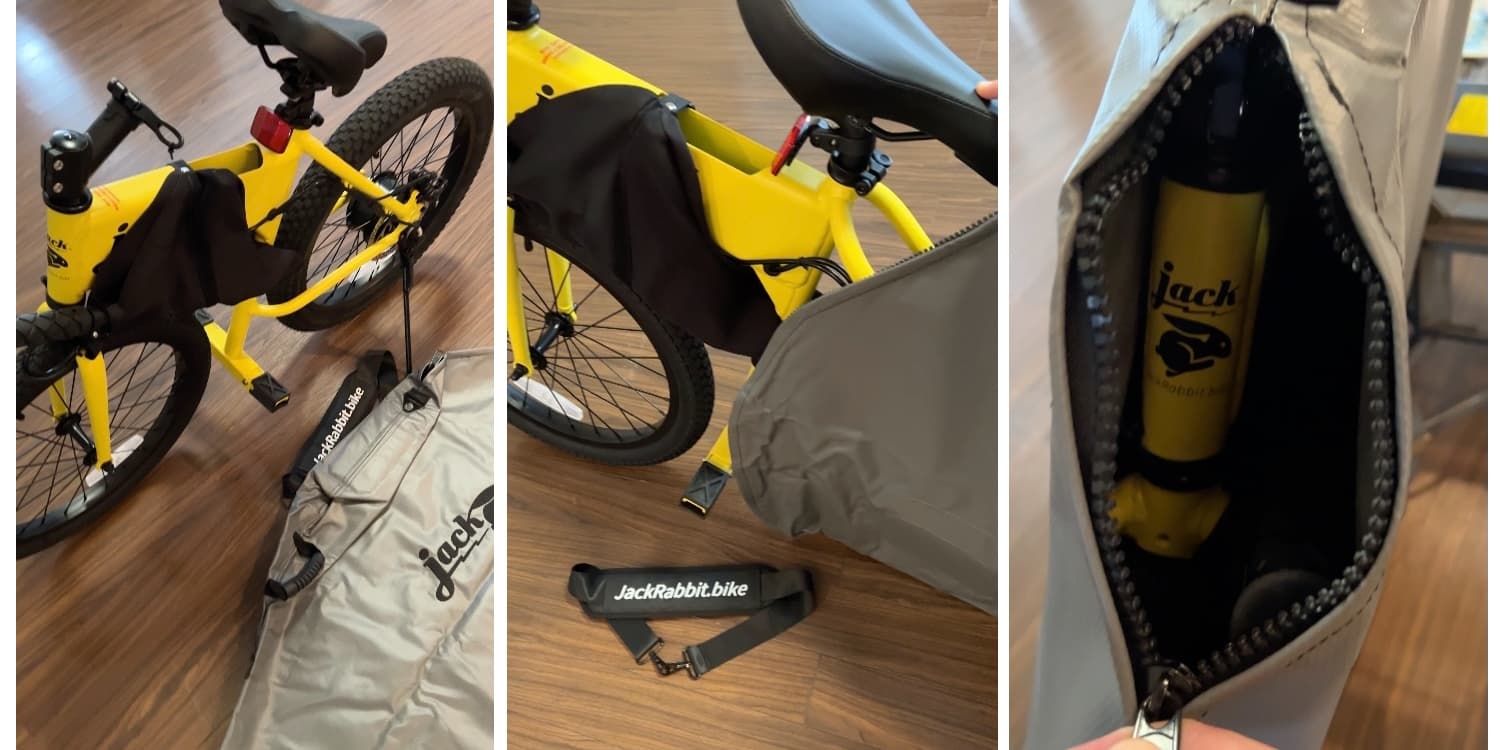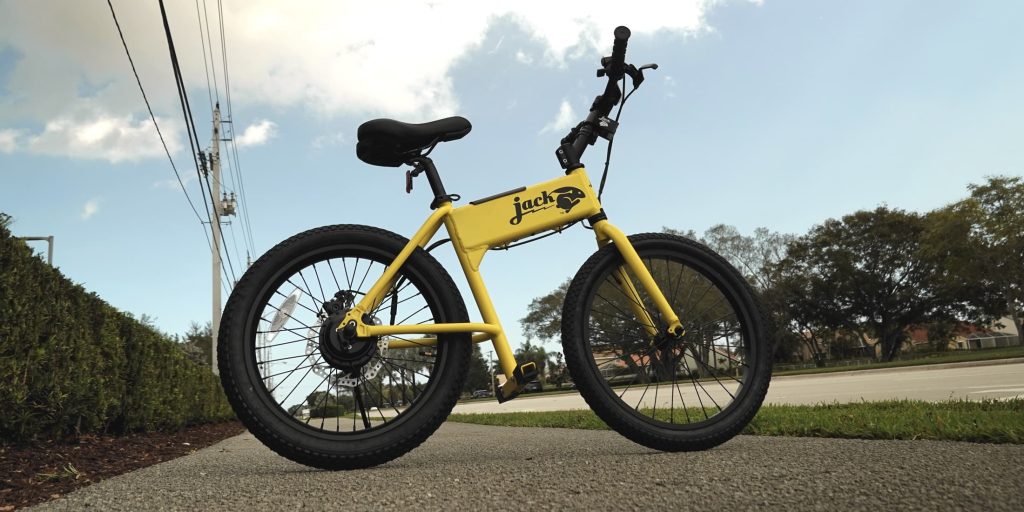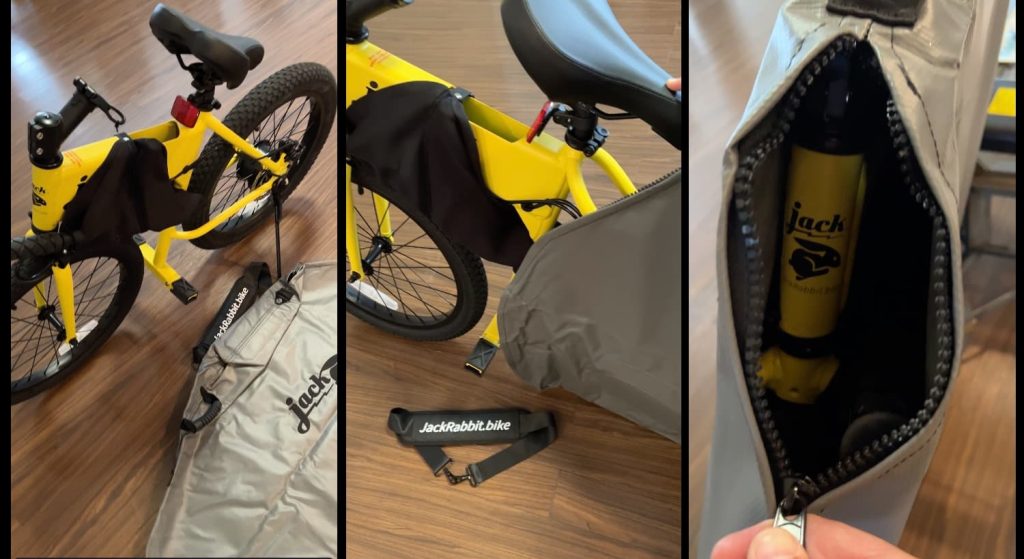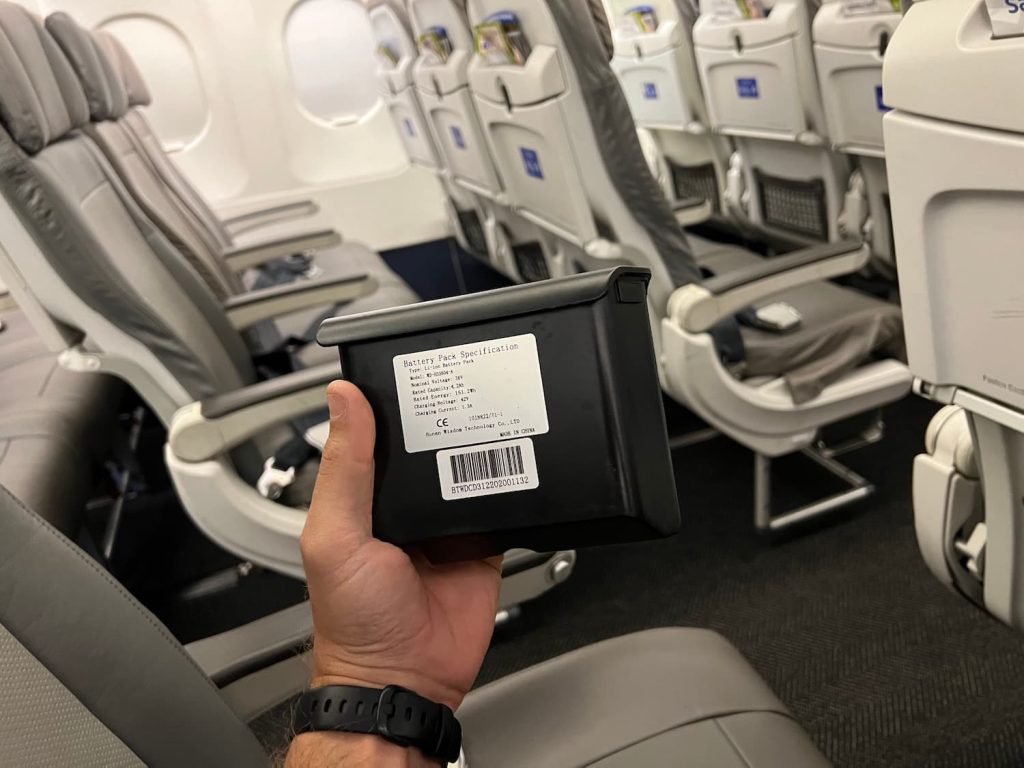
Have you ever tried flying with an electric bike? It’s surprisingly hard since those big lithium-ion batteries are usually not allowed in your checked luggage or in your carry-on. But that just made me even more determined to figure out a way to do it.
Electric bikes are a fast-growing and fun way to get to work, get exercise, or just get around and have fun. While often used for transportation or utility, electric bikes are also great for recreation. That means many people want to travel on vacation or for work with an e-bike. But those big lithium-ion batteries pose a problem since they are too large for air travel.
Or at least most of them are.
Nearly all airlines will allow batteries up to 100 Wh of capacity, and many allow batteries up to 160 Wh. That’s not very much, and is usually the size of a chunky portable cellphone charging battery. By comparison, a typical e-bike battery ranges from 300-700Wh.
And so to find an e-bike I could take on a plane, I had to cheat. I had to find an unusual e-bike that would actually fit the bill. And boy, did I!
The JackRabbit’s battery measures in at 36V and 4.2Ah, or around 151 Wh. It’s not much, only enough for around 10 miles (16 km) of range per charge. But it’s also just $199 to snag a second pocket-sized battery, which is what many people do to extend their range.

If you guys haven’t seen my review of the JackRabbit, you’ll want to check that out.
It may look oddly proportioned, and it is, but it’s also fun to ride and amazingly convenient for a city dweller thanks to its mere 11 kg (25 lb.) weight.
It was originally designed for students to navigate college campuses, and so it favors a small, lightweight, relatively inexpensive ride that works well in an urban environment.
Plus it’s the perfect e-bike for traveling by plane since it slips just under the regulations to allow it to be legally transported on passenger aircraft.

So to travel halfway around the world on a recent trip, I loaded up my JackRabbit e-bike (technically a form of seated scooter, also known as micro e-bikes) and its battery for the trip.
JackRabbit knows that many people use their e-bikes for travel, and they’re also common on private aircraft or boats as a way to get around once you land at a small airstrip or port. For that reason, the company created a travel bag perfectly sized for the JackRabbit.
The bag is just $125, which is actually pretty good for a travel bike bag. My main bike bag that I use for larger bikes cost around 5x as much (though it also has wheels) and hard armor. The JackRabbit travel bag may be lightweight and small, but it is reinforced in the areas where the axles and other hard points touch the bag. That means it is still small enough to fold up into something the size of a lunchbox.

I loaded up my JackRabbit in the bag, though I found it was a very tight fit. It took some serious jiggling, but it finally worked its way in.
The trick seemed to be to get the bike most of the way in, then hold the bag up on end and do a bit of wiggling and bouncing.
I had to remove the battery to keep it in my carry-on, since the batteries aren’t allowed in checked bags. Just to be safe, I also ran the battery to empty before the flight and also put a piece of tape over the battery contact.

From there, I simply checked in the bag like any other piece of checked luggage. That’s basically what it looks like, and I even managed to stuff about a week’s worth of laundry into the bag too (once the bike gets squeezed in, there’s still lots of negative space around the frame where your laundry can go).
I tossed an Airtag into the bag just to follow it along through the airports, which was useful since I also brought it on a several-day trip that had me passing through five or six different airports.
Once I made it to my final destination, which was a solid 7,000 or so miles (12,000-ish km) away from where I started, I unpacked the bike and charged up the battery. A couple hours later I was ready to rock and roll, riding away on my e-bike halfway around the world!

If I tried this with larger e-bikes that have higher-capacity batteries, I’d have to ship the battery separately and go through a hazardous goods process.
I’ve done it before but it’s super complicated, costly, and more of a hassle than most people will ever want to put up with. For those cases in the past, I had to become a certified hazmat shipper, believe it or not.
Being able to simply drop your e-bike off at the check-in counter and pick it up at baggage claim is a pretty awesome perk of a small battery e-bike. You may not be traveling very far on a charge, but if you’re using the bike as a way to get around the city, then a shorter range likely isn’t a big problem. And worst-case scenario: you just bring a spare battery. The more, the merrier!
FTC: We use income earning auto affiliate links. More.





Comments